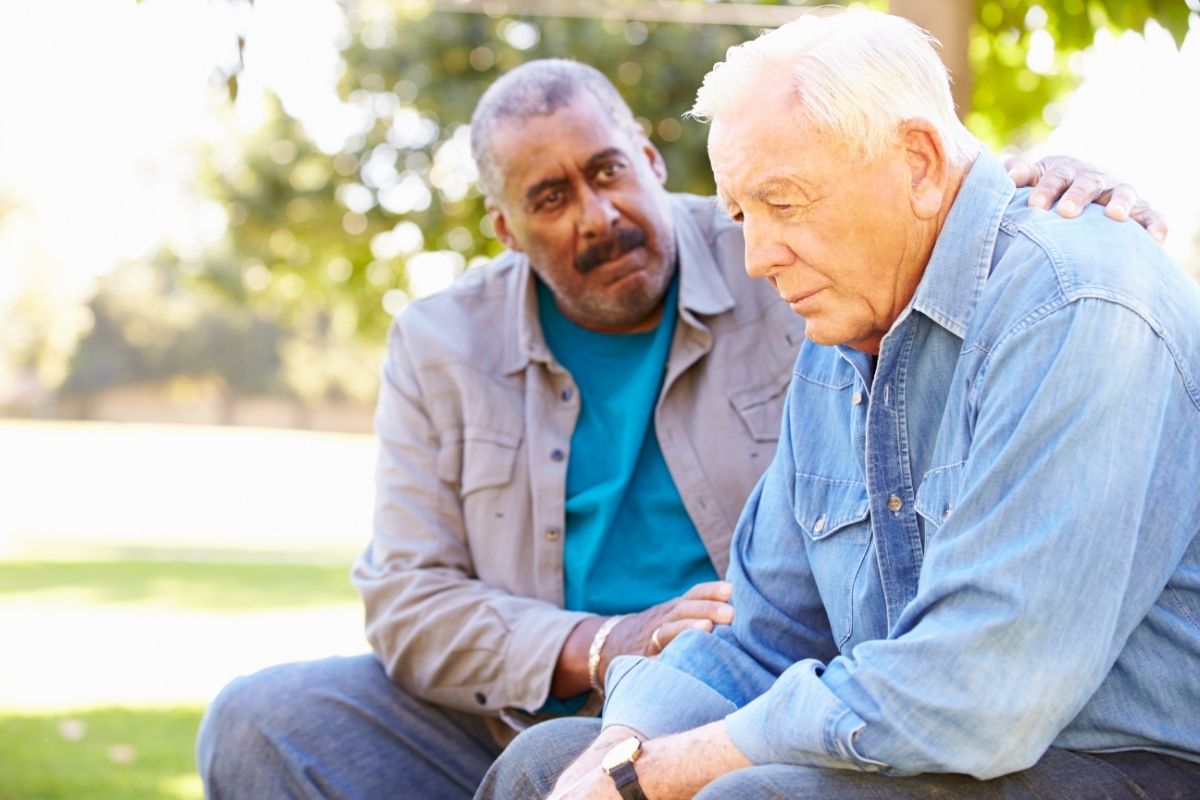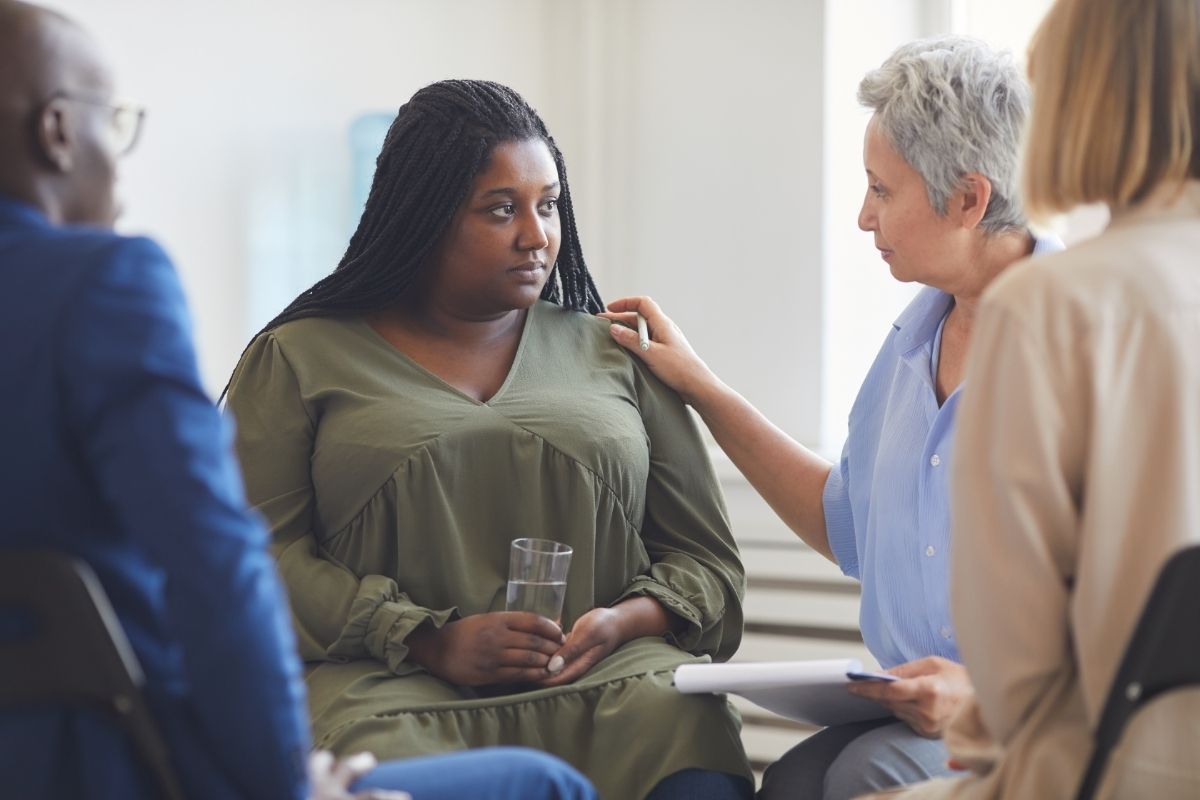Losing someone you love feels like a punch to the gut.
It’s a pain that can knock you off your feet and leave you gasping for air.
But there’s hope, even in the darkest moments.
I’ve been there, friend.
I’ve felt the ache of loss and the emptiness it leaves behind.
And I’ve learned a thing or two about surviving it.
In this guide, I’ll share my hard-won wisdom on how to cope with losing a loved one.
You’ll find practical tips, emotional support, and a roadmap to healing.
Whether you’re in the thick of grief or supporting someone who is, this guide is your lifeline.
So take a deep breath, and let’s dive in together.
Because with the right tools and support, you can not only survive this loss but grow from it.
In addition, we may feel guilty for not being able to help them more during their illness.
Navigating the Stormy Seas of Heartbreak
Here are some life rafts to help you stay afloat in the choppy waters of grief:
Treat Your Body and Soul with TLC
Grief can hit you like a ton of bricks.
Give yourself a break every day.
Go for a stroll, lose yourself in music, dive into a book, or veg out with some TV.
Do whatever floats your boat and helps you relax.
Don’t bottle up your feelings.
It’s okay to cry a river or scream into a pillow.
Let it all out.
Talk to someone about your sadness.
Tell them how you’re really feeling.
And for Pete’s sake, get some shut-eye.
Sleep is your secret weapon in this battle.
This Ain’t the End of the Road
It’s just the first step on your grief journey.
Don’t dwell on what’s happened.
Instead, think about what’s next.
What do you want your future to look like now?
How are you gonna move forward?
Spill the Beans to People Who Get It
If you’re struggling, reach out to friends, family, a spiritual leader, or a therapist.
They can offer a shoulder to cry on and words of wisdom.
Avoid unloading on strangers.
It might make you feel worse.
Stick to heart-to-hearts with your inner circle.
Cut Yourself Some Slack
Take a time-out if you need it.
You’ve earned it.
Give yourself permission to grieve.
Take breaks.
Lean on your loved ones if you need to.
Do whatever helps you feel a little better.
It’s totally fine to stay in bed and let your emotions run wild sometimes.
Look on the Bright Side
Remember, this too shall pass.
Focus on the good times with your loved one.
Try to picture them as they were before they left us.
It’ll give you something positive to hold onto when the pain hits.
Let Go of the Bad Vibes
Don’t hold onto anger or resentment.
When those feelings bubble up, push ’em back down.
Remember, your loved one didn’t die because of you.
They died because of an illness.
Nothing more, nothing less.
Find Your Happy Place
Pick up a hobby that brings you joy.
Maybe try a project with friends.
If you both dig crafts, make some decorations, gifts, or scrapbooks together.
You don’t need to break the bank to find your groove.
Borrow stuff from your local library.
Just pick something that won’t cost an arm and a leg.
Stay Busy as a Bee
Keep your hands and mind occupied.
Work, volunteer, exercise, or dive into a hobby.
Anything that keeps your mind off the pain will help.
If you sit around doing nothing, you might go nuts.
Get out there and volunteer, join a club, or hit up some community events.
Join the Grief Gang
A support group is like a club for people who’ve been through the same thing.
They can offer a listening ear and resources to help you through the rough patches.
Remember, you’re not alone in this.
Others are feeling the blues too.
Don’t be afraid to ask for help from your crew.
Crack a Smile
Laughter is the best medicine, they say.
Share a joke or two.
It’ll ease the tension and release those feel-good brain chemicals.
Use humor as your secret weapon against grief.
It’ll lighten the mood and keep your spirits up.
Hang Out with the Little Ones
Kids have a way of seeing the world with fresh eyes.
They ask questions that make you think.
You could tell them stories about your loved one.
Or visit a cemetery or memorial garden together.
Keep the Faith
Believe that you’ll get through this.
And if you’re religious, remember: God’s got your back.
He sees you through the tough times.
Know that the pain will fade, and you’ll find peace eventually.
Thank the Big Guy for the good times you had together.
Thank Him for the lessons you learned and the gift of life itself.
Jot Down Your Memories
Sometimes, writing down your favorite moments helps you remember the good times.
Live It Up
Take each day as it comes.
Every day’s got its ups and downs.
Make the most of every moment.
Teach an Old Dog New Tricks
Try something new.
Take a class at the local college or join a club.
Check out museums, volunteer, or dive into some cultural activities.
Count Your Blessings
Take a moment to thank your loved one for being in your life.
Honor all the good times you shared.
Wrapping It Up
Losing someone you love is tough as nails.
But it doesn’t have to break you.
With some patience, understanding, and self-care, you can bounce back from this loss.
You’ve got this, and I’m rooting for you every step of the way.



